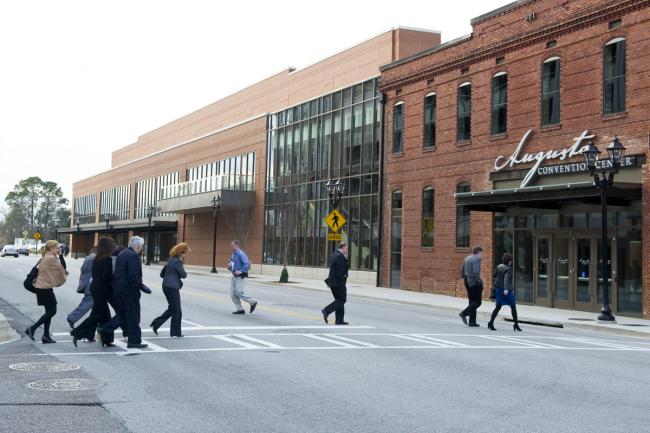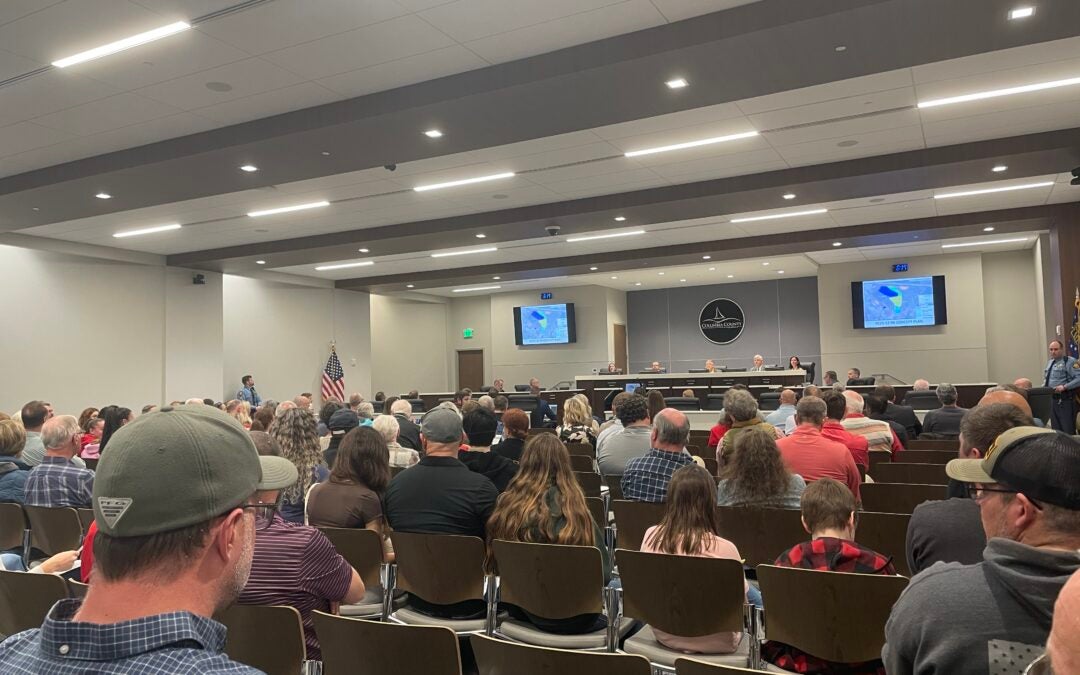Public attention has focused recently on neglected city-owned properties, such as the Boathouse at the Marina, but one city property tends to fly under the public radar despite over a decade of success in the trade conventions industry.
The Augusta Convention Center, which officially opened in 2013, has generated a cumulative estimated economic impact of $201,647,977 for Augusta in just 12 years, according to Destination Augusta.
Unlike the Masters Tournament, by far the city’s largest tourism draw, the convention center is open year round.
The crowds dwindled during the Covid epidemic and again in the wake of Hurricane Helene, but the balance sheets show that the numbers bounced back almost immediately. In contrast with other city-owned venues, the convention center was designed with profit potential in mind, rather than being just a public amenity or vanity project to compete with Savannah and Charlotte for tourism numbers. Officials say the building has consistently been a money-maker for the public tax digest, as well as a support for local businesses.
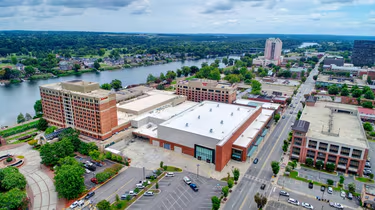
Derek May, president of Azalea Investments, the private company contracted by the city to run the convention center, says that attracting interest from groups located outside of the city to lease the facility for events is not nearly as much of a challenge as it is to “sell” Augustans on the many ways the center benefits the community.
“Most of the time, when people go to conventions, they want to go out of town; so, I think it is fair to say that many people who live here drive past the building often, but have never actually been inside,” May said.
The center most recently hosted its largest annual event, the Armed Forces Communications and Electronics Association (AFCEA) TechNet Conference, which attracted nearly 6,000 participants over the week and used every inch of available space at the 49,799 sq. ft. building and then some.
Not only was the show attended by local people assigned at Fort Gordon, but the AFCEA estimates that some 3,700 people travel from outside of Georgia and South Carolina to be at the event.
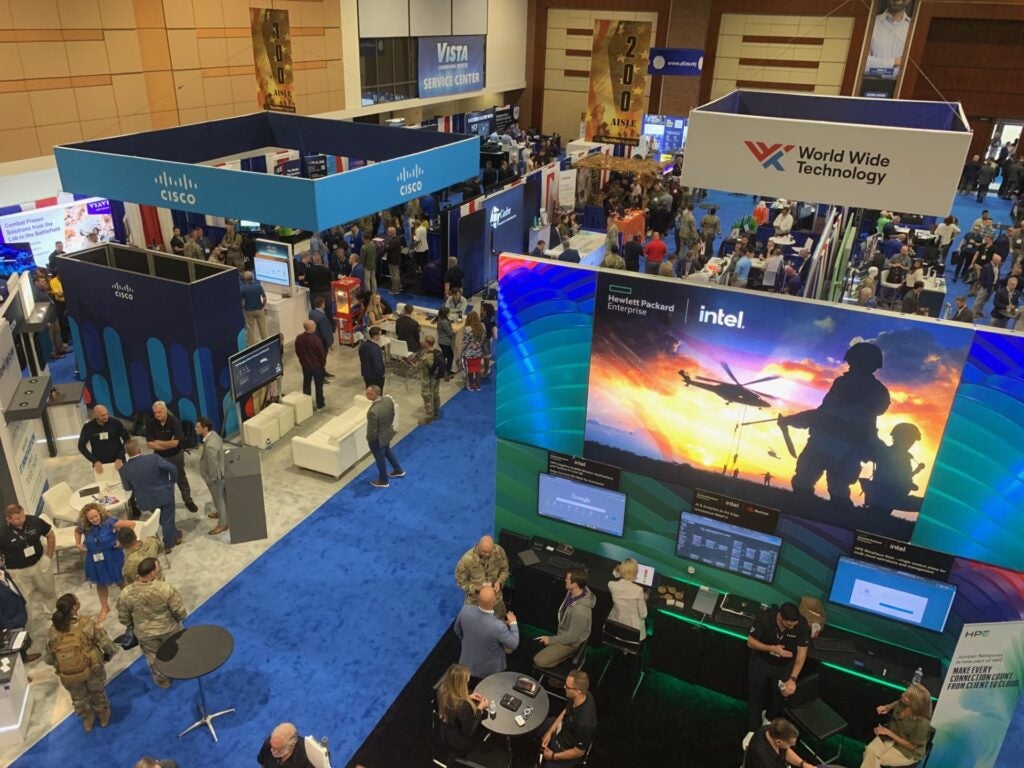
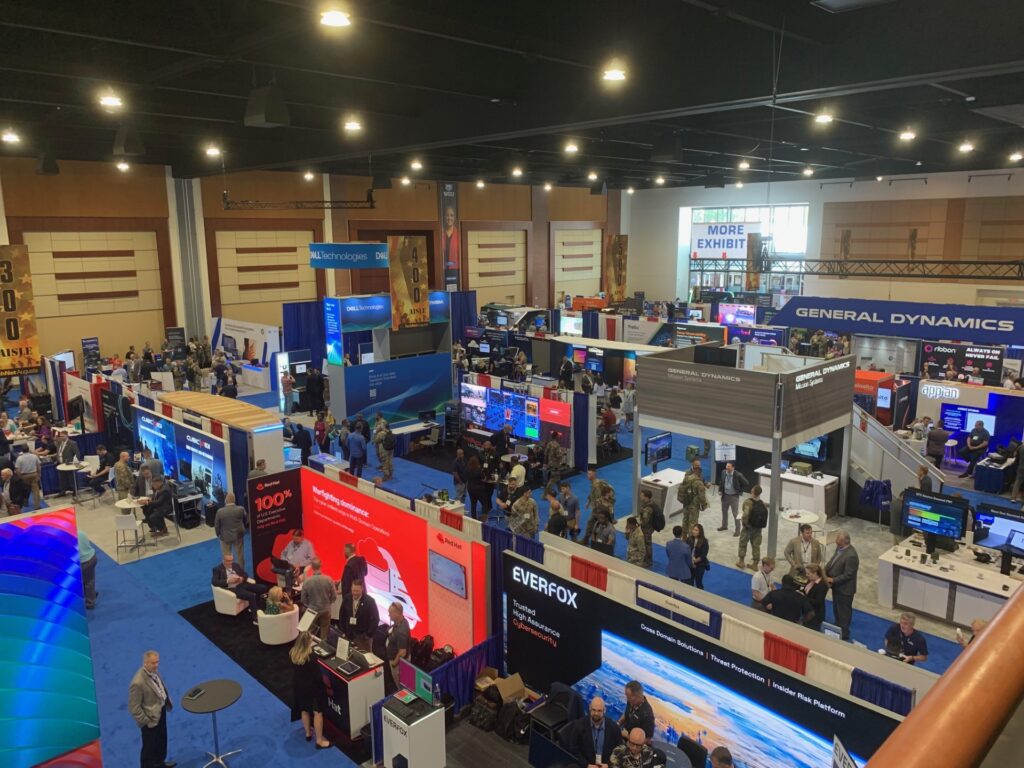
To accommodate the vendors and attendees, the venue was forced to spill the event out into the parking area, where a large climate controlled tent was erected and multiple portable units were parked for additional meeting and booth space.
A view of the main floor hosting TechNet showed a sea of booths and aisles that were a hive of activity where every high tech gizmo imaginable, including robotic “dogs,” were on display along with advanced telecommunications systems and state-of-the-art cyber security set ups.
Being a conference largely focused on internet securely meant that it attracted a large contingent of military folks who are used to more spartan accommodations. But according to May, while the tents were professionally built structures that looked more like buildings instead of just canvas walls flapping in the wind, other conventions, such as home decor or vintner conventions, expect permanent structures in which to showcase their wares.
“That is the only limitation we face right now, conventions are getting larger and we have completely outgrown the space we have now. To really compete, we need to literally add about 50% more to the size of our exhibition space,” May said.
According to May, it is not that the center was originally built too small for demand, rather that Augusta got into the trade exhibition business at the right time, just as things were really taking off. According to Tourism Economics, an Oxford Economics company, the convention business accounts for $446 billion in GDP and supports 5.9 million jobs nationwide.
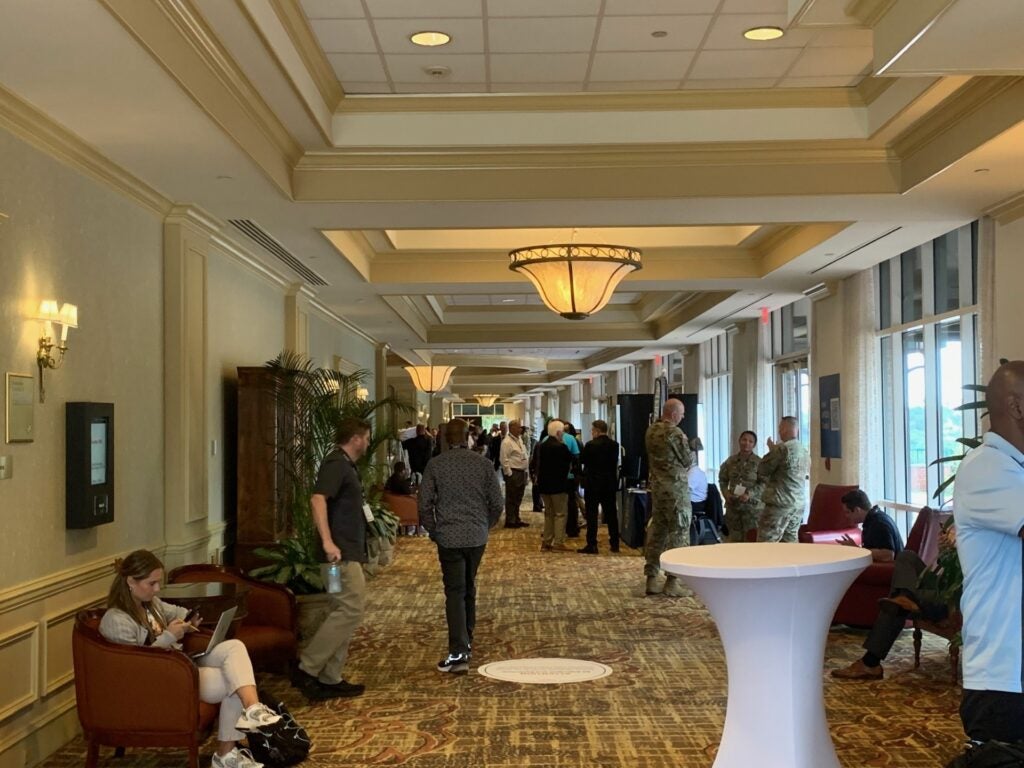
Brendan England, general manager of the Augusta Marriott at the Convention Center says that the Augusta Convention Center is not just a boon for his business, but pretty much everyone in local business benefits.
“For just Peach Jam alone, there are thousands upon thousands of attendees along with sports celebrities. During that week, it is hard to find a vacant hotel room in Augusta and these same people are eating at local restaurants and spending money directly into our economy,” England said.
The convention center works closely with Destination Augusta, formerly the Augusta Convention and Visitors Bureau, to target future conventions; the size of Augusta’s convention center becomes a major problem.
“Planners use AI to determine which are eligible cities, and if you are below 50,000 square feet, you automatically get rejected and we are just below that sort of ‘magic’ level,” May said.
Officials with Azalea Investments have asked to city to provide $18 million in SPLOST 9 funds to bring the building up to the size of with which it needs to compete and May says that if voters approve the measure, then the center can be enlarged enough to make it appropriate to house large conventions from the Farm Machinery Show to GamesCon easily for years to come.
“The convention center is the perfect example of a public-private partnership that works and benefits everyone involved, from the sales taxes and hotel/motel taxes to the average small business on the corner,” May said.
A recent tour of the building showed that far from being neglected, the center is meticulously cared for by its current stewards from the fresh looking carpet to the chandelier-clad ballroom ceilings, the building has aged well and, in many ways, still looks to be brand new.
Scott Hudson is the Senior Investigative Reporter, editorialist and weekly columnist for The Augusta Press. Reach him at scott@theaugustapress.com

